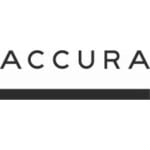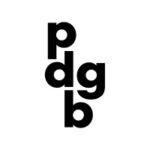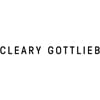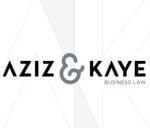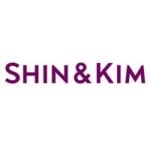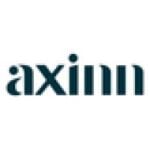-
What is the relevant legislative framework?
The relevant legislation on cartel regulation is the Act on Protection of Competition No. 4054 of 13 December 1994 (the ‘Competition Act’), which bases on Article 167 of Turkish Constitution assigning the government to prevent cartels and monopolies. The applicable provision for cartel-specific cases is Article 4 of the Competition Act. The provision is akin to, and closely modelled on, Article 101(1) of the Treaty on the Functioning of the European Union (‘TFEU’). It prohibits all agreements between undertakings, decisions by associations of undertakings, and concerted practices which have or may have as their object or effect the prevention, restriction or distortion of competition within a product or services market in Türkiye or a part thereof. The provision does not give a definition of ‘cartel’ and its scope extends beyond cartel activity.
The definition of ‘cartel’ is provided under the Regulation on Active Cooperation for Detecting Cartels (the ‘Leniency Regulation’) as well as the Guidelines on the Explanation of the Regulation on Active Cooperation for Detecting Cartels (the ‘Leniency Guidelines’). The definition provided by the Leniency Regulation and the Leniency Guidelines are identical and akin to the cartel definition adopted by other jurisdictions. According to the Leniency Regulation cartels are defined as competition-limiting agreements and/or concerted practices concluded between competitors concerning the subjects of price fixing, allocation of customers, suppliers, regions or commercial channels, introduction of supply amount restrictions or quotas, and collusive bidding in tenders. The cartel prohibition provisions are applied to all industries, without exception.
On December 16, 2023, the revised Leniency Regulation was officially published in the Official Gazette No. 32401, replacing the previous regulation that had been in effect since February 15, 2009 (referred to as the “Former Regulation”). Alongside this update, there is an intention to revise the Guidelines for Explanation of the Leniency Regulation, originally published in April 2013, to align with the changes introduced by the new Leniency Regulation.
Moreover, the Regulation on Administrative Fines to Apply in Cases of Agreements, Concerted Practices and Decisions Limiting Competition, and Abuse of Dominant Position (the ‘Regulation on Fines’) entered into force on December 27, 2024. It replaced the former regulation on fines, which had been enforced since February 15, 2009. It sets out detailed guidelines on the calculation of monetary fines. The Turkish Competition Authority (the ‘Authority’) also published the Guidelines on Administrative Fines to Apply in Cases of Agreements, Concerted Practices and Decisions Limiting Competition and Abuses of Dominant Position on February 19, 2025. Furthermore, the Authority published Guidelines on Competition Infringements in Labour Markets (“Labor Markets Guidelines”) on November 21, 2024. Under Labor Markets Guideline, wage fixing and no-poaching agreements that constitute an infringement by object are considered as cartel.
-
To establish an infringement, does there need to have been an effect on the market?
Cartels are regarded as object restrictions under the Turkish Competition Board’s (the ‘Board) decisional practice. Therefore, the Board is not required to establish anti-competitive effects when dealing with cartels and simply proving the existence of a cartel will be deemed sufficient to meet standard of proof for a competition law violation. Moreover, Article 4 of the Competition Act prohibits any form of agreement that aims or has the ‘potential’ to prevent, restrict or distort competition. This specific feature grants broad discretionary power to the Turkish Competition Board (the ‘Board’). Additionally, Article 4 of the Competition Act brings a non-exhaustive list which provides examples of possible restrictive agreements.
In 2020, the Competition Act was subject to essential amendments which passed through the Grand National Assembly of Turkiye (the ‘Turkish Parliament’) on 16 June 2020 and entered into force on 24 June 2020 (‘Amendment Act’) – on the day of its publication on Official Gazette No. 31165. The Amendment Act seeks to add the Authority’s experience of more than 20 years of enforcement to the Competition Act and bring it closer to European Union law. After the Amendment Act, – the Communiqué No. 2021/3 on De Minimis Applications for Agreements, Concerted Practices and Decisions of Associations of Undertakings (‘Communiqué No. 2021/3’) entered into force on 16 March 2021. It provides a safe harbour for companies whose market shares do not exceed 10 per cent for agreements between competitors, or 15 per cent for agreements between non-competitors, except for agreements that have an anti-competitive object. As a result, the Board is able to decide not to launch a fully-fledged investigation for agreements, concerted practices or decisions of association of undertakings that do not exceed the relevant market share thresholds. However, this principle is not applicable to hard-core violations such as price-fixing, territory or customer sharing, restriction of supply or resale price maintenance. Therefore, cartel arrangements do not benefit from the de minimis doctrine.
-
Does the law apply to conduct that occurs outside the jurisdiction?
Türkiye is one of the ‘effect theory’ jurisdictions, where what matters is the effect that a cartel activity has produced on the markets in Türkiye, regardless of (i) the nationality of the cartel members, (ii) where the cartel activity took place, or (iii) whether the members have a subsidiary in Türkiye (See decisions of Rail Cargo Logistics, 15-44/740-267, 16.12.2015; Güneş Ekspres/Condor, 11-54/1431-507, 27.10.2011; Imported Coal, 10-57/1141-430, 02.09.2010; Refrigerator Compressor, 09-31/668-156, 01.07.2009; Sisecam/Yioula, 07-17/155-50, 28.02.2007 and Gas Insulated Switchgears 04-43/538-133, 24.06.2004.). It should be noted that, however, the Board has yet to enforce monetary fines or other sanctions against undertakings located outside of Türkiye without any presence in Türkiye, as this is mostly due to the enforcement handicaps (such as difficulties of formal service to foreign entities).
Accordingly, export cartels do not fall within the scope of jurisdiction of the Authority in accordance with Article 2 of the Competition Act (See decision of Poultry Meat Producers, 09-57/1393-362, 25.11.2009), although there are instances where the Board’s reasoned decision suggests that the Board might claim jurisdiction over export cartels (See decision of Paper Recycling, 13-42/538-238, 08.07.2013). That said, it is fair to say that an export cartel would fall outside of the Authority’s jurisdiction if and to the extent that it does not produce an impact on the Turkish markets (See decisions of Telecommunication Companies, 29.05.2014, 14-19/361-157; Automotive Industry Exporters Association 20.09.2012, 12-44/1350-455).
-
Which authorities can investigate cartels?
The national competition authority for enforcing the cartel prohibition and other provisions of the Competition Act in Turkiye is the Authority. As the competent body, a cartel matter is primarily adjudicated by the Board that is responsible for, inter alia, investigating and condemning cartel activity. Administrative enforcement is also supplemented with private lawsuits. In private suits, cartel members are adjudicated before regular courts. If a cartel activity amounts to a criminally prosecutable act such as bid rigging in public tenders, it may separately be adjudicated and prosecuted by Turkish penal courts and public prosecutors.
-
How do authorities typically learn of the existence of a potential cartel and to what extent do they have discretion over the cases that they open?
The Authority’s decision-making body, the Board, is entitled to launch an investigation into an alleged cartel ex officio or in response to a notice, complaint or leniency application. In principle, applications to the Authority must be made in writing. If an application is submitted to the Authority orally, it is considered as a notice. The Authority has an online system through which complaints may be submitted. The Board will commence a preliminary investigation if the notice or complaint concerns an alleged violation within the scope of the Competition Act. If, after this preliminary investigation, the Board finds the allegations to be “serious and sufficient”, it will initiate a full-fledged investigation. Any notice or complaint is deemed rejected if the Board remains silent on the matter for 30 days. Although this is exceptional in practice, the Board may also initiate a full-fledged investigation directly without a preliminary investigation.
The Authority also frequently uses its ex-officio power to launch of preliminary investigation and may utilise investigatory powers upon news and updates in its’ cooperation network. The Boards may also receive complaints and notices through official administrative channels of state. For example, in Yeast Producers decision (17.08.2023; 23-39/755-264), complaints on the alleged cartel activity for price fixing between yeast producers were notified to the Authority over Directorate of Communications of the Presidency (CİMER).
-
What are the key steps in a cartel investigation?
The Board may ex officio, or as a result of a notice or complaint, launch a preliminary investigation prior to initiating a full-fledged investigation. At the preliminary investigation stage, unless the Authority decides to conduct a dawn raid or apply other investigatory tools (i.e. formal information request letters), the undertakings concerned are not notified about the preliminary investigation. The preliminary investigation report of the Authority’s case handlers will be submitted to the Board within 30 days after the Board’s preliminary investigation decision. The Board will then decide within 10 days whether to launch a full-fledged investigation. If the Board decides to initiate a full-fledged investigation, it will send a notice to the undertakings concerned within 15 days. The investigation will be completed within six months once the Authority serves the investigation report to the undertakings. If deemed necessary, this period may be extended by the Board only once, for an additional period of up to six months.
In accordance with the Article 44/2 of the Competition Act, the person or persons alleged to have violated the Act may submit any information and evidence that may affect the Board’s decision during the investigation phase. Hence, it is best practice to submit a defence to affect the position of the Authority before the formal service of the Investigation Report (which is akin to Statement of Objections in the European Commission’s practice). Additionally, following the formal service of the Authority’s Investigation Report, undertakings have the right to submit a written defence. Once the Investigation Report is served on the investigated undertakings, they have 30 calendar days to respond, extendible for a further 30 days. After the submission of the defence in response to the Investigation Report, if there is any change in the views of the case handlers in terms of their Investigation Report, the case handlers will have 15 calendar days to prepare an Additional Opinion. The defending parties will have another 30-day period to reply to the additional opinion as well.
Once the defendant’s written defences are submitted to the Authority, the written phase of the investigation will be completed. An oral hearing is held upon request by the parties. The Board may also ex officio decide to hold an oral hearing. Oral hearings are held within at least 30, and at the most, 60 days following the completion of the written defence process under the provisions of Communiqué on Oral Hearings before the Board No. 2010/2. The Board will render its final decision within: (i) 15 calendar days from the hearing, if an oral hearing is held; or (ii) 30 calendar days from the completion of the investigation process, if no oral hearing is held. It usually takes around six months (from the announcement of the final decision) for the Board to serve a reasoned decision to the investigated parties.
-
What are the key investigative powers that are available to the relevant authorities?
The Authority may request information it deems necessary from all public institutions and organisations, undertakings and trade associations. They are obliged to provide the necessary information within the period determined by the Authority. Article 15 of the Competition Act also authorises the Authority to conduct on-site investigations. Accordingly, the Authority is entitled to examine the books, paperwork and documents of undertakings and trade associations, and, if necessary, take copies of the same; request undertakings and trade associations to provide written or verbal explanations on specific topics; and conduct on-site investigations with regard to any asset of an undertaking; and examine records of computers and mobile devices, including but not limited to deleted items accessed through company’s servers and cloud systems (including those located outside Turkiye). The Competition Act provides huge powers to the Authority on dawn raids. Only if the undertaking concerned refuses to allow the dawn raid, a court order may be obtained. Other than that, the Authority does not need to obtain judicial authorisation to use its powers. While the wording of the Act is such that employees can be compelled to give verbal testimony, in practice, employees can avoid providing answers on issues that are uncertain to them, provided that a written response is submitted within a mutually agreed time.
In addition to the above, the Amendment Act also includes an explicit provision that during on-site inspections, the Authority can inspect and make copies of all information and documents in companies’ physical records as well as those in electronic spaces and IT systems, which the Authority already does in practice.
Similarly, the Authority published its Guidelines on Examination of Digital Data During On-site Inspections on 8 October 2020, which set forth the general principles with respect to the examination, processing and storage of data and documents held in the electronic media and information systems, during the on-site inspections (‘Guidelines on Examination of Digital Data’). According to the Guidelines on Examination of Digital Data, the Authority can inspect portable communication devices (mobile phones, tablets, etc.) if, as a result of a quick review, it is understood that they include digital data about the undertaking. The inspection of the digital data obtained from mobile phones must be completed at the premises of the undertaking, hence the data cannot be copied for the continuation of the inspection at the Authority’s premises.
-
On what grounds can legal privilege be invoked to withhold the production of certain documents in the context of a request by the relevant authorities?
According to İstanbul Custom Consultants Association (19-22/352-158, 20.06.2019), Warner Bros Türkiye (19-04/36-14, 17.01.2019), Enerjisa (16-42/686-314, 06.12.2016) and Dow Türkiye (15-42/690-259, 02.12.2015) decisions, the attorney client protection covers the correspondences made in relation to the client’s right of defence and documents prepared in the scope of an independent attorney’s legal service. However, the correspondence between the undertaking concerned, its employees and in-house counsels does not benefit from the attorney–client privilege (regardless of whether the outside counsel is copied, or the correspondence is related to legal matters (Huawei 07.08.2019, 19-28/433-M), Çiçek Sepeti (2.07.2020, 20-32/405-186)). Correspondences that are not directly related to use of the client’s right of defence and/or that aim to facilitate/conceal a violation are not protected, even when they are related to a preliminary investigation, investigation or inspection process. While an independent attorney’s legal opinion on whether an agreement violates the Competition Act can be protected under the attorney-client privilege, the correspondences on how the Competition Act can be violated between an independent attorney and client do not fall within the scope of this privilege.
That said, the Eighth Administrative Chamber of the Ankara Regional Administrative Court issued a unique decision on attorney-client privilege in 2018 (Enerjisa, 2018/1236, 10 October 2018). The decision concerned an internal review report of outside counsel for competition law compliance purposes, which had been prepared before the authority opened an investigation against Enerjisa. The report was taken by the case handlers during a dawn raid conducted in the scope of the investigation against this company at a later stage. The court held that although the document was correspondence “between an independent attorney and the undertaking”, it was not protected under attorney-client privilege given that “it was not directly related to the right to defence”, due to its preparation prior to an investigation. In a similar vein, in Warner Bros (17.01.2019, 19-04/36-14), Storytel (30.03.2023, 23-16/274-94) and Oriflame (17.08.2023, 23-39/735-252) decisions, the Board decided that documents produced before the date of the pre-investigation are not directly related to the right to defence and would not benefit from the privilege. On the other hand, in its recent decision (Transorient and Tunaset, 26.05.2022, 22-24/390-161) the Board concluded that documents produced before the date of the pre-investigation benefit from the privilege.
-
What are the conditions for a granting of full immunity? What evidence does the applicant need to provide? Is a formal admission required?
Under the recently amended Leniency Regulation, the leniency program now extends its coverage to both cartel members and facilitators. This expansion broadens the scope of full immunity to include parties involved in hub-and-spoke cartels or other facilitators, who, in practice, face similar administrative sanctions as cartel members. They are now eligible to benefit from active cooperation, thereby enhancing the avenues for leniency applications accepted by the Authority.
According to the amended Leniency Regulation, while parties or facilitators seeking immunity can apply for leniency until the Investigation Report is officially served, applicants seeking a fine reduction can apply for leniency within three months of receiving the Investigation Notice, provided they submit required information and documents and meet specified conditions. Additionally, applicants obtaining further information and documents subsequent to their initial application can submit these materials before the conclusion of the second written defence period, which occurs 30 days after the Investigation Report is served (extendable for another 30 days).
While the leniency program traditionally applies to cartel infringements, the amended Leniency Regulation introduces new provisions offering exemptions or fine reductions under the leniency mechanism, even when the applicant initially believed their actions constituted cartel violations, but subsequent Board determination reveals otherwise. This change aims to address concerns of undertakings hesitant to utilize the leniency program due to uncertainties surrounding the nature of their infringements. This is in parallel with the Board’s precedent indicating that a leniency applicant may enjoy a total immunity from fines according to Article 16/6 of the Competition Act that allows the Board to impose no fine on the undertakings actively cooperating with the Board depending on the, among others, level of cooperation, even when the subject matter falls under another form of antitrust violation (See decision of Syndicate Loans (17-39/636-276, 11.11.2017).
In alignment with European Union legislation, the Leniency Regulation now imposes an additional requirement for applicants seeking a fine reduction. This stipulation necessitates that applicants furnish documents deemed to create added value, defined in the Regulation as “information and/or documents that strengthen the Board’s ability to substantiate the existence of the cartel, considering the evidence already in its possession.” Through this requirement, the Authority seeks to delineate clearly between the active cooperation and settlement procedures.
Although the Leniency Regulation provides a basic definition of “document that create added value,” it is expected that the forthcoming revised Guideline on Leniency Programs will offer more detailed guidance on discerning which documents qualify. Moreover, if a leniency application from a particular undertaking is rejected due to the documents it submitted not meeting the criteria of “documents that create added value,” the information and documents provided by that undertaking will be excluded from the scope of the file. Consequently, they will not serve as a basis for the final decision reached at the conclusion of the investigation.
Depending on the application order, the applicant may be granted full immunity or reduction of a fine. This immunity/reduction includes both the undertaking and its employees and managers, except for the “ringleader”, which can only benefit from a second-degree reduction of a fine.
The first one to file an appropriately prepared application for leniency before the investigation report is officially served may benefit from full immunity, provided that the Authority is not in possession of any evidence indicating a cartel infringement. However, there are also several other conditions provided as follows as per Article 6 of the Leniency Regulation: the applicant shall submit information and documents in respect of the alleged cartel, including the products affected, information on the geographical scope of the cartel, the duration of the cartel, the names and addresses of cartelists and cartel facilitators, and specific dates, locations, and participants of cartel meetings. In addition, the applicant should not conceal or destroy information or evidence related to the alleged cartel; should end its involvement in the alleged cartel except when otherwise is requested by the Cartel Unit of the Authority on the ground that detecting the cartel would be complicated; should keep the application confidential until the end of the investigation, unless otherwise is requested by the assigned unit; and should maintain active cooperation until the Board’s final decision on the investigation.
-
What level of leniency, if any, is available to subsequent applicants and what are the eligibility conditions?
The rules explained in Question 9. apply to subsequent cooperating parties as well. Also, the Board may consider the parties’ active cooperation after the immunity application as a mitigating factor as per the provisions of the Regulation on Fines.
The first applicant seeking a fine reduction receives a fine reduction ranging between 25 and 50 percent. Employees or managers of this applicant who actively cooperate with the Authority may enjoy a fine reduction ranging from 20 to 100 percent.
The second applicant seeking a fine reduction receives a fine reduction ranging between 20 and 40 percent. Employees or managers of this second applicant who actively cooperate with the Authority may enjoy a fine reduction ranging from 20 to 100 percent.
Subsequent applicants receive a reduction ranging between 15 and 30 percent, with their employees or managers potentially benefiting from a reduction of between 15 and 100 percent.
Current employees of an applicant are entitled to the same level of leniency or immunity granted to the entity. However, there are no precedents regarding the status of former employees. Additionally, according to the Leniency Regulation, a manager or employee of an applicant may apply for leniency until the official service of the investigation report. Such an application would be separate from any applications made by the applicant itself. Depending on the order of application, the manager or employee may receive total immunity from or a reduction in the fine imposed, with the conditions for immunity or reduction being identical to those designated for the applicants.
-
Are markers available and, if so, in what circumstances?
Although the Leniency Regulation does not provide detailed principles on the ‘marker system’, pursuant to Article 6(3) of the Leniency Regulation and paragraph 54 et seq. of the Leniency Guidelines, a document (showing the date and time of the application and request for time (if such a request is in question) to prepare the requested information and evidence) will be given to the applicant by the authorized division. For the applicant to be eligible for a grace period, it must provide minimum information concerning the affected products, duration of the cartel and names of the cartelists and cartel facilitators (if any).
-
What is required of immunity/leniency applicants in terms of ongoing cooperation with the relevant authorities?
Articles 6 and 9 of the Leniency Regulation provide that unless stated otherwise by the Cartel Unit of the Authority, the principle is to keep leniency applications confidential until the service of the investigation report. Nevertheless, to the extent the confidentiality of the investigation will not be harmed, the applicant undertakings could provide information to other competition authorities or institutions, organisations and auditors. As per paragraph 44 of the Leniency Guidelines, if the employees or personnel of the applicant undertaking disclose the leniency application to the other undertakings and breach the confidentiality principle, the Board will evaluate the situation on a case-by-case basis based on the criteria of whether the person at issue is a high-level manager, and whether the Board was notified promptly after the breach. The applicant is in any case obliged to maintain active cooperation until the final decision is taken by the Board following the conclusion of the investigation.
-
Does the grant of immunity/leniency extend to immunity from criminal prosecution (if any) for current/former employees and directors?
While the Turkish cartel regime is administrative and civil in nature, certain antitrust violations such as bid rigging in public tenders may also trigger criminal consequences under Sections 235 et seq. of the Turkish Criminal Code. Illegal price manipulation (i.e. manipulation through disinformation or other fraudulent means) may also be punished buy up to two years’ imprisonment and civil monetary fine under Section 237 of the Turkish Criminal Code. Immunity or leniency does not close the door on leveraging criminal procedures on the basis of a Board decision. Therefore, employees/managers of an offending company may face criminal liability, even in cases where the company benefits from immunity or leniency from administrative monetary fines.
-
Is there an ‘amnesty plus’ programme available in respect of evidence provided to prove additional infringements?
Prior to the amendments in the Regulation on Fines, amnesty plus was regulated under Article 7 of the Regulation on Fines. According to Article 7 of the Regulation on Fines, the fines imposed on an undertaking which cannot benefit from immunity provided by the Leniency Regulation was to be decreased by one-fourth, if it provides the information and documents specified in the Leniency Regulation prior to the Board’s decision of preliminary investigation in relation to another cartel. The amended Regulation on Fines, however, does not include a provision on the amnesty plus.
-
Does the investigating authority have the ability to enter into a settlement agreement or plea bargain and, if so, what is the process for doing so?
The Amendment Act introduced a settlement procedure. Relevant provision was added to Article 43 concerning investigations of anticompetitive conduct in general (not limited to cartels but also to ‘other infringements’ under Article 4 and abuse of dominance cases under Article 6). The Board, ex officio or upon a party’s request, could initiate a settlement procedure. Unlike the commitment procedure, settlement could only be offered in full-fledged investigations. In this respect, parties that admit an infringement can apply for the settlement procedure until the official service of the investigation report. The Board will set a deadline for the submission of the settlement letter and if settled, the investigation will be closed with a final decision including the finding of a violation and administrative monetary fine. If the investigation ends with a settlement, the Board can reduce the administrative monetary fine by up to 25 per cent.
As confirmed by the Board, the undertakings concerned can apply for settlement and leniency together as long as the leniency application is submitted to the Authority before the settlement text (See decisions of Beypazarı (22-23/379-158, 18.05.2022) and Kınık Maden Suları (22-17/283-128, 14.04.2022). In Beypazarı and Kırık Maden Suları decisions, the Board indicated that Beypazarı and Kınık exchanged competitively sensitive information in terms of commercial decisions regarding pricing, and thus, engaged in a cartel. Both Beypazarı and Kınık applied for settlement and leniency. The Board accepted both parties’ applications and reduced the administrative fines imposed on Kınık and Beypazarı by 35% and 30%, respectively, for opting in to the leniency mechanism. Moreover, the Board reduced the administrative fines imposed on both parties by 25% in view of their settlement with the Authority, enabling Kınık and Beypazarı to benefit from 60% and 55% reduction in fines, respectively.
A recent example of combined application of the Settlement and Leniency Regulation is the Board’s Güres Tavukçuluk Üretim Paz. ve Tic. AŞ (“Güres”), Güneş Kalıplı Basma Kutu Ambalaj San. ve Tic. AŞ (“Güneş”) and Yuva Viyol ve Ambalaj San. ve Tic. Ltd. Şti. (“Yuva”) decisions. Güres, Güneş and Yuva were part of an egg cartoon cartel, which consisted of a total of six undertaking. In its Güres decision, the Board applied a 25% reduction under the Settlement Regulation and a 45% reduction under the former Leniency Regulation, amounting in total to a 70% reduction of the administrative monetary fine. Thus, the monetary fines imposed on Güres decreased drastically from TL 12,620,077.22 to TL 3,786,023.17. In its Güneş decision, the Board applied a 25% reduction under the Settlement Regulation and a 30% reduction under the former Leniency Regulation, amounting in total to a 55% reduction of the administrative monetary fine. Thus, the monetary fines imposed on Güneş decreased from TL 2,260,006.43 to TL 1,017,002.89. In its Yuva decision, the Board applied a 25% reduction under the Settlement Regulation and a 16,67% reduction under the former Leniency Regulation, amounting in total to a 41,67% reduction of the administrative monetary fine. Thus, the monetary fines imposed on Yuva decreased from TL 745,241.88 to TL 439,592.10.
-
What are the key pros and cons for a party that is considering entering into settlement?
If the investigated party decides to settle, a discount from 10% up to 25% will be applied to the administrative monetary fine by the Authority Regulation on the Settlement Procedure for Investigations on Anticompetitive Agreements, Concerted Practices, Decisions and Abuse of Dominant Position. Settlement mechanism requires the acceptance of the alleged infringements. If investigated party submits the settlement letter, it will not be able to bring the final decision to the judicial review. Once the settlement negotiations have started and then abandoned, another settlement request cannot be submitted to the Authority.
According to Article 7 of the Settlement Regulation, the Board renders an interim decision, including but not limited to information on the rate of the maximum administrative fines calculated under the Regulation on Fines, the discount rate to be applied as a result of the settlement procedure, the discount rate to be applied, if any, under the Active Cooperation Regulation, and the rate and amount of the maximum administrative fines to be imposed. Therefore, the settlement parties have certainty about the amount of fine to be imposed. However, under the current legislation, there is no room to shape the content of the settlement decision.
The acknowledgement of an infringement could be used as evidence in the potential damages actions against the settling undertakings and weaken their defences in those legal battles as it still remains possible for third parties who suffered damages to initiate a lawsuit for compensation. This is particularly important as claimants of such cases, if successful, are allowed to recover three times their losses as compensation pursuant to Article 58 of Competition Act. It is not clear yet how the courts in these cases will view the settlement decisions, and whether they will consistently render decisions to the detriment of settling undertakings in the future. Reasoned settlement decision of the Board will be publicly announced on Authority’s website as is the case with other reasoned decisions of the Board.
The Authority published the statistics on case results for the first six months of 2024. Based on the statistics, in the first six month of 2024, 66 cases concerning the violation of Article 4 of the Competition Act, out of 96 in total were concluded through settlement mechanism. For the year of 2023, the same statistics displayed that 69 cases were concluded through settlement mechanism out of 146 cases concerning the violation of Article 4 of the Competition Act in total. The fact that number of the cases concluded thorough settlement mechanism in the first half of 2024, nearly matches the number for 2023 indicated undertakings’ inclination for application of settlement mechanism.
-
What is the nature and extent of any cooperation with other investigating authorities, including from other jurisdictions?
Article 43 of Decision No. 1/95 of the EC- Türkiye Association Council authorises the Authority to notify and request the European Commission (Directorate General for Competition) to apply relevant measures if the Board believes that cartels organised in the territory of the European Union adversely affect competition in Türkiye. The provision grants reciprocal rights and obligations to the EU and Türkiye, and thus the European Commission has the authority to request the Board to apply relevant measures to restore competition in relevant markets. There are also a number of bilateral cooperation agreements between the Authority and the competition agencies in other jurisdictions on cartel enforcement matters. The Authority has close ties with the Organization for Economic Cooperation and Development, the United Nations Conference on Trade and Development, the World Trade Organization, the International Competition Network and the World Bank. The research department of the Authority makes periodic consultations with relevant domestic and foreign institutions/organisations about the protection of competition and submits its recommendations to the Board.
Additionally, the Authority put forward the idea of creating the “Balkan Competition Platform” to strengthen and institutionalize the cooperation between the countries in the region. The Balkan Competition Platform aims to ensure smooth running of markets in the Balkan region, which is a crossroads connecting the east-west and north-south trade corridors and holds an important strategic position, while promoting sustainable and stable development in compliance with the precepts of free market economy. Furthermore, in 2024, Turkic States Competition Council was formed under the leadership of the Authority with an aim to closely follow the activities of competition authorities from the Turkic states (Türkiye, Kazakhstan, Uzbekistan, Kyrgyzstan, Azerbaijan, Hungary, Turkmenistan and Northern Cyprus) in the field of competition law and policy, and to exchange knowledge and experience in this area.
As an example of inter-agency cooperation of the Authority with its counterparts, on October 17, 2023, the European Commission officially announced that certain unannounced inspections at the premises of companies active in the construction chemicals sector were carried out in coordination with the UK Competition and Markets Authority and the Authority, on the very same day.
The cooperation protocol with Public Procurement Authority has been revised on November 5, 2024. With the revised protocol, the Authority has expanded the cooperation between the two authorities to cover developing AI-assisted tools for detecting competitive risks and possible violations in public procurements as well as conducting joint statistical modelling and analysis work. Particularly, the cooperation aims at using AI-assisted technologies to fight procurement cartels. Informal contacts do not constitute a legal basis for the Authority’s actions
-
What are the potential civil and criminal sanctions if cartel activity is established? How often are civil sanctions and/ or criminal penalties imposed in practice following a finding of an infringement?
The sanctions that may be imposed under the Competition Act are administrative in nature. Therefore, the Competition Act leads to administrative fines (and civil liability) but no criminal sanctions. Cartel conduct will not result in imprisonment of the individuals implicated. That said, there have been cases in which the matter was referred to a public prosecutor before and after the investigation under the Competition Law was complete. On that note, bid-rigging activity may be criminally prosecutable under Section 235 et seq. of the Criminal Code. Illegal price manipulation (i.e., manipulation through disinformation or other fraudulent means) may also be punished by up to two years’ imprisonment and a judicial monetary penalty under Section 237 of the Criminal Code.
The undertakings concerned will be separately subject to fines of up to 10 per cent of their turnover generated in the financial year prior to the date of the fining decision (if this is not calculable, the Turkish turnover generated in the financial year nearest to the date of the fining decision will be taken into account). In the latest decisions of the Board, the turnover generated from the export sales have not been taken into account in calculating the amount of fine (See decisions of Sunny Elektronik 23-01/12-7, 05.01.2023; Retailers-II 22-55/863-357, 15.12.2022; Numil 30.06.2022, 22-29/483-192; Retailers-I 28.10.2021, 21-53/747-360; Unilever 18.03.2021, 21-15/190-80; Google Android 19.09.2018, 18-33/555-273; Booking 05.01.2017, 17-01/12-4; Consumer Electronics 07.11.2016, 16-37/628-279). Nonetheless, the Board itself stated in one of its previous decisions that it is not stipulated under the Competition Act that solely the turnover generated from the Turkish geographic market should be considered (See decision of Sunexpress 27.10.2011, 11-54/1431-507). In the same vein, the Authority’s recently amended Regulation on Fines counts the presence of overseas sales revenues in the annual gross revenues as a mitigating factor.
Employees or members of the executive bodies of the undertakings or association of undertakings that had a determining effect on the creation of the violation may also be fined up to 5 per cent of the fine imposed on the undertaking or association of undertakings. In addition to that, the Board could take all necessary measures to terminate the restrictive agreement, to remove all de facto and legal consequences of every action that has been taken unlawfully and to take all other necessary measures in order to restore the level of competition and status as before the infringement.
In addition to the monetary sanction, restrictive agreements may be deemed legally invalid and unenforceable with all their legal consequences. The Amendment Act grants the Board the power to order structural remedies for anti-competitive conduct provided that behavioural remedies are applied in the first place but failed. Either way, both behavioural and structural remedies should be proportionate to and necessary to end the infringement effectively. Furthermore, a restrictive agreement shall be deemed legally invalid and unenforceable with all its legal consequences. Similarly, the Board may take interim measures until the final resolution on the matter, in case there is a possibility of serious and irreparable damages.
-
What factors are taken into account when the fine is set? Does the existence of an effective corporate compliance strategy impact the determination of the fine? In practice, what is the maximum level of fines that has been imposed in the case of recent domestic and international cartels?
The Competition Act makes reference to Article 17 of the Act on Minor Offences to require the Board to take into consideration factors such as the level of fault and amount of possible damage in the relevant market, the market power of the undertakings within the relevant market, the duration and recurrence of the infringement, the cooperation or driving role of the undertakings in the infringement, the financial power of the undertakings, compliance with their commitments, etc., in determining the monetary fine.
As stated above, in the case of proven cartel activity, the Board has discretion to determine a base fine rate up to the statutory maximum of 10% of the undertaking’s turnover. In terms of the highest monetary fines imposed by the Board as a result of a cartel investigation, Retail decision regarding pricing activities of the market chains and the undertakings at the manufacture or wholesale level that are suppliers to the market chains (21-53/747-360, 28.10.2021) stands out in two aspects: first it is the one where the highest monetary fine imposed on a single undertaking as a result of a cartel investigation (BİM Birleşik Mağazalar A.Ş.) as TL 958,129,194.39 (around EUR 91.95 million at the time of decision, in 2021) and second, where the highest monetary fine imposed for an entire case (imposed on 6 undertakings active in the fast moving consumer goods sector) was TL 2,671,434,094.38 TL (approximately EUR 256.4 million at the time of decision, in 2021).
In accordance with the recently amended Regulation on Fines, the distinction between “cartel” and “other violations” in the determination of base administrative monetary fines and lower and upper limits for said base fines determined based on the type of violation (i.e., 2% to 4% for cartels and 0.5% to 3% for other violations) has been revoked. Furthermore, the new Regulation foresees that the base fine will be determined by considering, in particular, the severity of the harm caused or likely to be caused by the violation and whether the nature of the violation is naked and/or hard-core. Moreover, while the revoked regulation foresaw an increase in base administrative monetary fines if the violation lasted for more than 1 but less than 5 years and more than 5 years, the new Regulation on Fines puts forth specific base fine rates for violations lasting more than 1 year but less than 2 years, more than 2 years but less than 3 years, more than 3 years but less than 4 years, more than 4 years but less than 5 years, and more than 5 years. Additionally, the new Regulation on Fines redefines aggravating factors and mitigating factors. Namely, aggravating factors are defined as recurrence of violations of Article 4 and/or Article 6, continued violation after the notification of the investigation decision, decisive role in terms of infringement or the breach of confidentiality requirement under Article 12 of the Settlement Regulation whereas mitigating factors are defined as assistance with on-site inspections (beyond fulfilling legal obligations), coercion to the violation by other undertakings, limited involvement in the violation, low revenue share of the activities constituting the violation, the presence of overseas sales revenues in the annual gross revenues and so on. The Regulation on Fines does not consider the existence of an effective corporate compliance strategy as a mitigating factor. That said, there have been several cases where the Board considered the existence of a compliance programme as an indication of good faith (Unilever, 12–42/1258–410; Efes, 12–38/1084–343). However, recent indications suggest that the Board is disinclined to consider a compliance programme to be a mitigating factor. Although they are welcome, the mere existence of a compliance programme is not enough to counter the finding of an infringement or even to discuss lower fines (Frito Lay, 13–49/711–300; Industrial Gas, 13–49/710–297).
Moreover, while the revoked regulation provided lower and upper limits for the amount of discount to be applicable to cases in consideration of mitigating factors, the new regulation removes these lower and upper limits. Therefore, the Authority has discretion to determine a base fine rate up to the statutory maximum of 10% of the undertaking’s turnover, as set forth in Article 16 of the Competition Act. Furthermore, in terms of fines to be applied to managers and employees who have had a decisive influence on the violation, the new regulation removes the lower limit previously foreseen with the revoked regulation and only keeps the upper limit (i.e. up to 5 per cent of the fine imposed on the relevant undertaking).
-
Are parent companies presumed to be jointly and severally liable with an infringing subsidiary?
Article 16 of the Competition Act makes a reference to the term “undertaking” when it identifies the entity which the monetary fine is to be imposed on. Therefore, for instance, in the Board’s Waste Paper decision (13-42/538-238, 08.07.2013) the Board found the parent companies liable instead of the joint venture. However, this is an exceptional case and the Board has a consistent approach to fine the legal entity which was involved in cartel behaviour (the actual infringing legal entity / infringing subsidiary) rather than fining the parent company as a whole (the whole group’s, i.e. the undertaking’s, revenue) (See decisions of Automotive, (11-24/464-139, 18.04.2011); Cement, (12-17/499-140, 06.04.2012); Financial Institutions (17-39/636-276, 28.11.2017); Hospitals (22-10/152-62, 24.02.2022).
-
Are private actions and/or class actions available for infringement of the cartel rules?
Article 57 et seq. of the Competition Act entitle any person injured in his or her business or property by reason of anything forbidden by the antitrust laws to sue the violators for three times their damages plus litigation costs and attorney fees. Turkish procedural law does not allow for class actions or procedures. While Article 73 of Act No. 6502 on the Protection of Consumers allows class actions by consumer organisations, these actions are limited to violations of Act No. 6502, and do not extend to cover antitrust infringements. Similarly, Article 58 of the Turkish Commercial Code enables trade associations to take class actions against unfair competition behaviour, but this has no reasonable relevance to private suits under Article 57 et seq. of the Competition Act.
-
What type of damages can be recovered by claimants and how are they quantified?
Article 58 of the Competition Act determines how to calculate the amount of any damages suffered. Parties that suffer as a result of the prevention, distortion or restriction of competition may claim as damages the difference between the cost that they paid and the cost that they would have paid if competition had not been restricted. Pursuant to Article 58, in determining the damage, all profits expected to be gained by the injured undertakings are calculated by taking into account the balance sheets of the previous years as well.
-
On what grounds can a decision of the relevant authority be appealed?
Board decisions, including decisions on interim measures and fines can be appealed before the administrative courts under the appeal process. Administrative litigation cases are subject to a three-level appellate court system consisting of Administrative Courts, Regional Courts (appellate courts) and the Council of State. The judicial review of the Board’s decisions before the administrative courts is conducted pursuant to administrative law principles. Ankara administrative courts examine whether the Board’s decision complies with the law in terms of subject matter, form, purpose, jurisdiction and reason. The Ankara administrative courts may uphold or annul the Board’s decision. The Ankara administrative court cannot lawfully substitute or replace the Board’s decision or decide on the matter instead of the Board. Decisions by the Ankara administrative courts are subject to appeal before the regional courts (appellate courts) and the regional courts will go through the case file both on procedural and substantive grounds and investigate the case file and make their decision considering the merits of the case. The decisions of the regional courts are subject to appeal before the High State Court. If the challenged decision is annulled in full or in part, the administrative court remands it to the Board for review and reconsideration. In other words, Turkish administrative procedure prohibits courts’ review of expediency over administrative acts.
Accordingly, while the administrative courts can decide that the Board’s decision is illegal in terms of merits and/or the determination of the amount of the fine and annuls the Board’s decision, the administrative court rendering the annulment decision will not have the authority to render a new decision, on behalf the Board.
-
What is the process for filing an appeal?
As per the Act No. 6352, the administrative sanction decisions of the Board can be submitted for judicial review before the Administrative Courts in Ankara by the filing of an appeal case within 60 days upon receipt by the parties of the reasoned decision of the Board. As per Article 27 of the Administrative Procedural Act, filing an administrative action does not automatically stay the execution of the decision of the Board. However, upon request by the plaintiff, the court, providing its justifications, may grant stay of execution if such execution is likely to cause serious and irreparable damage; and if the decision is highly likely to be against the law (i.e. the showing of a prima facie case). The judicial review period before the Ankara Administrative Courts usually takes about 12 to 24 months. After exhausting the litigation process before the Administrative Courts of Ankara, the next step for the judicial review is to initiate an appeal against the Administrative Court’s decision before the regional courts. The appeal request for the Administrative Courts’ decisions will be submitted to the regional courts within 30 calendar days of the official service of the reasoned decision of the Administrative Court. The final step for the judicial review is to file an appeal against the regional court’ decision before the High State Court as the final degree court in the appeal process. Similar to the appeal process before the regional courts, an appeal request against the regional court’ decision will be submitted within 30 calendar days of the official service of the reasoned decision of the regional court.
-
What are some recent notable cartel cases (limited to one or two key examples, with a very short summary of the facts, decision and sanctions/level of fine)?
In FMCG II (22-55/863-357, 15.12.2022) the Board decided that BİM Birleşik Mağazalar AŞ, CarrefourSA Carrefour Sabancı Ticaret Merkezi AŞ, Migros Ticaret AŞ, Şok Marketler Ticaret AŞ, and Yeni Mağazacılık AŞ had violated Article 4 of the Competition Law through agreements or concerted practices related to a hub-and-spoke cartel. The Board found that the said chain stores shared competitively sensitive information, coordinated their prices and price increases and colluded on and increased prices through retailers. The Board also found strategies such as product-specific price reduction was employed to ensure compliance with collusion among undertakings in case competitor prices did not rise. Consequently, the Board decided that an administrative monetary fine should be imposed on these undertakings in accordance with Article 16 of the Competition Law. However, considering that an administrative fine had already been imposed on the said chain stores pursuant to the Board’s FMCG I Decision, following the general legal principle “ne bis in idem,” the Board opted not to levy a new administrative monetary fine on the said chain stores, instead it imposed fines only on retailers within the scope of the investigation.
The board is also highly active as to the practices such as no-poaching and wage fixing arrangements in labour markets. With its decision dated 26.07.2023 and numbered 23-34/649-218, the Board imposed fines on 27 undertakings on the ground of entering into gentleman’s agreements not to recruit each other’s employees and to restrict employee mobility. The distinctive feature of the Board’s decision is that investigated practices were considered as cartel.
The Board recently concluded its investigation on whether 19 private schools operating in the Kocaeli province violated Article 4 of the Competition Act through non-poaching agreements and fixing employee salaries. In Mye decision of the Board (04.04.2024; 24-16/391-158) alleged violations included (i) information exchange between private schools’ representatives determining the yearly school meal fees and (ii) no poaching and wage fixing agreements concerning the teachers’ mobility in the job market. Findings of the case evidence mainly consisted of WhatsApp correspondences and displaying the exchange of competitively sensitive information between school representatives. The Board concluded that (i) agreement between private school representatives concerning the price increase rate of school meal fees over WhatsApp correspondences and meetings violates Article 4 of the Competition Act and (ii) private school representatives’ agreement concerning the increase rate of teachers’ salaries and decisions directed to restrict teachers’ mobility in the job market constitutes restriction of competition in labour market. Consequently, the Board imposed an administrative fine of 49.007,52 TL on Özel Mye Öğretim Eğitim Hizmetleri Tic. Ltd. Şti. for each violation separately, while the investigation was concluded through settlement procedure for 18 undertakings.
Similarly, in its French Highschool decision (24.04.2024, 24-20/466-196), the Board investigated whether French high schools in Istanbul jointly determined school registration fees and components of these fees, as well as the salaries of Turkish teachers. The Board imposed administrative monetary fine of approximately 21 million TL on French High Schools in Istanbul for their practices in labour market (24.04.2024, 24-20/466-196).
In Fresh Yeast (17.08.2023, 23-39/755-264), the Board conducted an investigation against three yeast producers, Lesaffre Turquie Mayacılık Üretim ve Ticaret AŞ (“Lesaffre”), Mauri Maya Sanayi AŞ (“Mauri”) and Pak Gıda Üretim ve Pazarlama AŞ, and 21 dealers. The Board determined that 14 of the investigated fresh yeast dealers had engaged in (i) price-fixing, (ii) allocation of customers and regions and (iii) restriction of supply. The Board also found that Mauri had facilitated the implementation, coordination, continuity and control of the agreements on price-fixing and customer/region allocation between distributors. Accordingly, the Board imposed monetary fines of TL 35,446,535.28 in total on the relevant yeast producer and the dealers. The Board indicated that even if an undertaking is not directly a party to an agreement, undertakings which facilitate the implementation, coordination, continuity and control of the agreement in question may be deemed to be a party to the anti-competitive agreement. Furthermore, Lesaffre submitted an application to benefit from the provision of the Leniency Regulation, and the Board accepted the undertakings’ application and reduced the administrative monetary fine down to 35%. Afterwards, during the course of the investigation Lesaffre also submitted application for the settlement mechanism. The Board accepted the Lesaffre’s application and terminated the investigation for Lessafre.
-
What are the key recent trends (e.g. in terms of fines, sectors under investigation, any novel areas of investigation, applications for leniency, approach to settlement, number of appeals, impact of hybrid working in enforcement practice – e.g. dawn raids of domestic premises, ‘hybrid’ in-person/virtual dawn raids, access to personal devices, etc.)??
The annual statistics of the Authority for 2023 provide that the Board finalised a total of 145 cases relating to competition law violations. Among the 145 cases, 121 were subject to Article 4 of the Competition Act (anticompetitive agreements) and only 6 cases were subject to both Article 4 and Article 6 (abuse of dominant position). The sectors that were scrutinized most were (i) information technologies and platform services, (ii) telecommunication (including internet services, digital publishing and IPTV), (iii) media, advertising and publishing, (iv) agriculture and agricultural products and (v) food industry (including packaged goods production, wholesale/retail sales, etc.)), respectively.
Similar to global trends, technologies and digital platforms have come under close scrutiny by the Authority. The Authority first announced its plans for the development unit to concentrate on digital markets in May 2020 and subsequently released its Final Report on the E-Marketplace Sector Inquiry on April 14, 2022. Additionally, an assessment report on financial technologies in payment services, focusing on payment services and fintech ecosystems, was published on December 9, 2021. Moreover, on April 7, 2023, the Authority issued its Preliminary Report on the Online Advertising Sector Inquiry, initiated in January 2021 alongside the anticipated DMA-type legislation in Turkiye.
Further, on April 18, 2023, the Authority published the Study on the Reflections of Digital Transformation on Competition Law, offering an overview of the competition law framework for digital markets and emphasizing challenges related to data practices, algorithmic collusion, interoperability, and platform neutrality.
The Authority is currently contemplating legislative actions concerning digital markets. The expected amendment aims to introduce new definitions regarding digital markets and impose fresh obligations on entities with significant market power. Regulations targeting gatekeepers highlighted in the Final Report on the E-Marketplace Sector Inquiry are anticipated to be integrated into Article 6 of the Competition Act, governing abuse of dominant position, or potentially added as a standalone article. The draft amendment reflects the Authority’s endeavours to address competition issues in digital markets, ongoing since early 2021, although the timeline for adoption remains uncertain.
Conversely, the Authority’s market inquiries into traditional sectors persist. On March 30, 2023, the Authority published its Final Report on the Sector Inquiry into the fast-moving consumer goods sector. Presently, the Authority is conducting market studies on automotive, cement and construction chemicals sectors. Moreover, the Authority has established a Cooperation and Information Exchange Protocol with the Turkish Personal Data Protection Authority, aiming to promote competitive practices, align competition and data protection measures, and address concerns stemming from data-driven technologies, thereby enhancing consumer control over personal data.
The Authority published annual statistics for the first six months of 2024. The statistics provide that between from January to June 2024, the Board finalised a total of 96 cases relating to competition law violations. Among the 96 cases, 90 were subject to Article 4 of the Competition Act (anticompetitive agreements) and only 2 cases were subject to both Article 4 and Article 6 (abuse of dominant position). The Board concluded 23 investigation in the first six month of 2024. The sectors that were scrutinized most were (i) food industry (retail sector), (ii) Chemicals and mining, (iii) automotive and vehicles (iv) machine industry, (v) culture, arts, entertainment games of chance and education.
-
What are the key expected developments over the next 12 months (e.g. imminent statutory changes, procedural changes, upcoming decisions, etc.)?
As elaborated in previous sections, the recently amended Leniency Regulation was published in the Official Gazette and came into effect on 16 December 2023. It replaced the former leniency regulation, which had been enforced since 15 February 2009. A Guidelines on Explanation of the Regulation on Leniency is expected to be updated in parallel with the new Leniency Regulation.
The Leniency Regulation expanded the scope of full immunity to the parties to a hub-and-spoke cartel or other cartel facilitators, who are, in practice, held liable for administrative sanctions in the same way as the cartel parties do, by allowing them to also benefit from active cooperation and broadened the Authority’s avenues for accepting leniency applications.
Another important change brought by the recently amended Leniency Regulation is the requirement to provide documents deemed to create added value, as defined in the Leniency Regulation as “information and/or documents that will reinforce the Board’s ability to prove the cartel, taking into account the evidence already held by the Board”. Within this requirement, the Authority aims to establish a clear distinction between the active cooperation procedure and the settlement procedure. If a leniency application from a particular undertaking is rejected due to the documents it submitted not meeting the criteria of “documents that create added value,” the information and documents provided by that undertaking will be excluded from the file’s scope. Consequently, they will not be considered as a basis for the final decision made as a result of the investigation.
Further, the Leniency Regulation provides the opportunity for applicants to receive an exemption or fine reduction under the leniency mechanism. This applies even if the applicant initially applies for leniency, believing it to be a cartel violation, but the Board later determines that the specific infringement does not qualify as a cartel. The aim is to address concerns of undertakings that may be hesitant to utilize the leniency program due to uncertainties about the nature of the infringement.
The recently amended Regulation on Fines increased the discretionary power of the Board in determination of fines, by removing the distinction between “cartel” and “other violations” in the determination of base administrative monetary fines and lower and upper limits for said base fines determined based on the type of violation. Furthermore, the new Regulation foresees that the base fine will be determined by considering the severity of the harm caused or likely to be caused by the violation and whether the nature of the violation is naked and/or hard-core. Therefore, application of the recently amended Regulation on Fines is expected to be established by the Board’s practice in the upcoming 12 months trajectory.
Türkiye: Cartels
This country-specific Q&A provides an overview of Cartels laws and regulations applicable in Türkiye.
-
What is the relevant legislative framework?
-
To establish an infringement, does there need to have been an effect on the market?
-
Does the law apply to conduct that occurs outside the jurisdiction?
-
Which authorities can investigate cartels?
-
How do authorities typically learn of the existence of a potential cartel and to what extent do they have discretion over the cases that they open?
-
What are the key steps in a cartel investigation?
-
What are the key investigative powers that are available to the relevant authorities?
-
On what grounds can legal privilege be invoked to withhold the production of certain documents in the context of a request by the relevant authorities?
-
What are the conditions for a granting of full immunity? What evidence does the applicant need to provide? Is a formal admission required?
-
What level of leniency, if any, is available to subsequent applicants and what are the eligibility conditions?
-
Are markers available and, if so, in what circumstances?
-
What is required of immunity/leniency applicants in terms of ongoing cooperation with the relevant authorities?
-
Does the grant of immunity/leniency extend to immunity from criminal prosecution (if any) for current/former employees and directors?
-
Is there an ‘amnesty plus’ programme available in respect of evidence provided to prove additional infringements?
-
Does the investigating authority have the ability to enter into a settlement agreement or plea bargain and, if so, what is the process for doing so?
-
What are the key pros and cons for a party that is considering entering into settlement?
-
What is the nature and extent of any cooperation with other investigating authorities, including from other jurisdictions?
-
What are the potential civil and criminal sanctions if cartel activity is established? How often are civil sanctions and/ or criminal penalties imposed in practice following a finding of an infringement?
-
What factors are taken into account when the fine is set? Does the existence of an effective corporate compliance strategy impact the determination of the fine? In practice, what is the maximum level of fines that has been imposed in the case of recent domestic and international cartels?
-
Are parent companies presumed to be jointly and severally liable with an infringing subsidiary?
-
Are private actions and/or class actions available for infringement of the cartel rules?
-
What type of damages can be recovered by claimants and how are they quantified?
-
On what grounds can a decision of the relevant authority be appealed?
-
What is the process for filing an appeal?
-
What are some recent notable cartel cases (limited to one or two key examples, with a very short summary of the facts, decision and sanctions/level of fine)?
-
What are the key recent trends (e.g. in terms of fines, sectors under investigation, any novel areas of investigation, applications for leniency, approach to settlement, number of appeals, impact of hybrid working in enforcement practice – e.g. dawn raids of domestic premises, ‘hybrid’ in-person/virtual dawn raids, access to personal devices, etc.)??
-
What are the key expected developments over the next 12 months (e.g. imminent statutory changes, procedural changes, upcoming decisions, etc.)?



